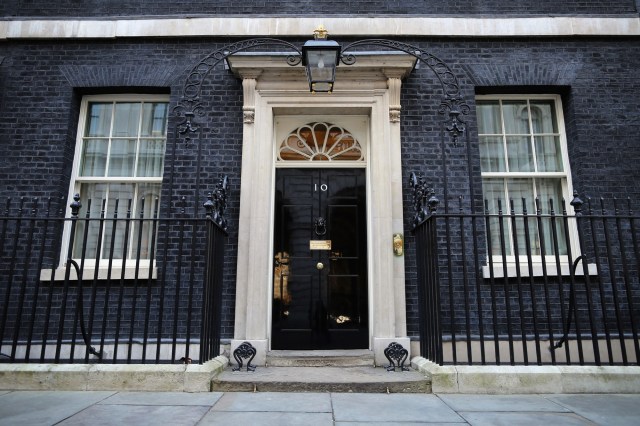Credit: by Dan Kitwood/Getty

As our exit from Europe continues to dominate daily politics, other, vitally important areas are being neglected. So what should our politician’s priorities be once we are beyond Brexit? We asked our contributors to draw up a pledge card for a post-Brexit manifesto.

1. A fair deal for people who don’t go to university
The biggest divide revealed by the Brexit vote was between graduates and the rest. The education system – and our society and politics – are skewed in favour of the half of school-leavers who go on to HE. Further Education has suffered big real-terms funding cuts.
Total funding for adult education and apprenticeships has fallen by a stunning 45% since 2009–10. Numbers of adult learners have halved. That doesn’t just hurt their prospects, it hurts the economy: the UK workforce has one of the lowest levels of basic skills in the OECD; the Joseph Rowntree Foundation estimates that 5 million adults lack basic numeracy and literacy.
All those cuts in funding should be reversed, and not just for the sake of productivity and employment. Britain neglects and fails large swathes of the population who happen not to have or be seeking a university degree. That needs to change.
2. End the council tax farce
Council tax is a historically unfair mess. The banding system is madly regressive, putting a heavy burden on those with the smallest, cheapest homes, while the ultra-wealthy in multi-million-pound palaces pay just a fraction of their worth. Most appalling of all, the whole system still runs on the basis of property values from 1991.
Meanwhile, local councils have been starved of cash by a central government that controls almost all public money. It’s time to start again with a sweeping overhaul of local government finance that ensures local taxation is both progressive and properly local: councillors and mayors should raise more of the money they spend.
Politicians of all sorts know reform is overdue: a ComRes survey of 150 MPs published in January 2015 found that 75% agreed that Council Tax should be re-valued. But successive governments have shied away from reform for fear of a backlash from wealthy homeowners for whom the current unfair system works quite nicely. Enough cowardice. Time for change.
3. A decent social care system funded from wealth, not wages
Everyone in politics knows that the social care system is broken, a chaotic, underfunded mess where local authorities desperately try to stretch ever-thinner budgets to fit, where the NHS holds on to too many elderly patients because they can’t be discharged to a place of adequate care, and where families are left to pick up the pieces where they can.
And everyone knows that the most sensible, progressive way to fund the additional spending the system needs is to take the money from the inflated housing assets held by current and future care-recipients. Yes, the “dementia tax”, or something like it, should be implemented, not least since the alternative is taking the money from taxes on income.
And why should today’s workers pay more tax to fund care for today’s retired homeowners, who can pass on their housing wealth tax-free? A competent government with a strong leader could win the argument for funding care from wealth instead of wages.
4. Scrap HS2 to save the seaside
HS2 is a laudable project, but the opportunity cost of the £60-odd billion it will cost is simply too high; the money could deliver much more benefit elsewhere. Top of the list for consideration should be Britain’s seaside towns, which are often cut off from the wider economy and blighted by high unemployment, poor health and education. Better physical connections – trains, buses, new roads – for the likes of Blackpool, Weston Super Mare and Clacton would make it easier for young residents to get a better education and make it easier for towns to attract better teachers and more businesses.
Better broadband would help too. It is barely 40 miles from Skegness to Lincoln, but the only public transport option is a bus journey of two hours. Spending billions to shave a few minutes off intercity journeys to London in that context is just not acceptable.
Then take the change left over from the £60 billion and spend it on better public transport within the cities and urban areas of the north and Midlands, not a grand project making it easier to reach the imperial capital.
5. Real reform of executive pay: make it lower, and longer
Many of contemporary Britain’s economic and social challenges are partly caused by big business taking short-term decisions: failing to invest properly in the innovation that boosts productivity and wages, failing to treat staff and customers with respect, sometimes failing to obey the law. The people who run those companies need better incentives to think long-term.
Executive bonuses should be tied directly to the health of the company, and always deferred for several years: CEOs should have an incentive to ensure the firm is in good order years after they have left the job.
They should also get longer in the job: the average chief of a big public company today lasts less than five years in post. Longer contracts would allow longer-term thinking, benefiting the wider UK economy.
Click here to compare James Kirkup’s pledge card to the others in our Beyond Brexit series.










Join the discussion
Join like minded readers that support our journalism by becoming a paid subscriber
To join the discussion in the comments, become a paid subscriber.
Join like minded readers that support our journalism, read unlimited articles and enjoy other subscriber-only benefits.
Subscribe